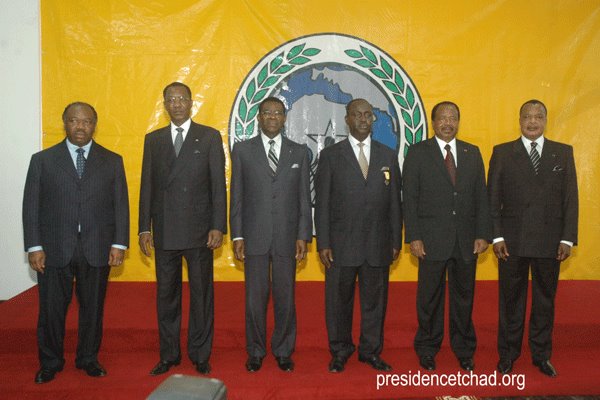The correct role of government in a free society is to create an environment where individuals and businesses can go about their lawful duties unimpeded most especially by exorbitant taxes, corruption and ‘bad governance’. Government has to put in place a legal framework which caters for the business concerns of entrepreneurs, especially female entrepreneurs. This may sound discriminatory, but the truth is that women are the most affected vulnerable group in most business milieus especially in Central Africa.
Central African governments seem much uninvolved in furnishing an adequate environment for female entrepreneurs to carry out businesses. No wonder only a small percentage of individual economic activities involving female entrepreneurs get to cross borders within the region, making a ridicule of the Central African trading zone which benefits very little from the eleven-member sub regional trading bloc, the Economic Community of Central African States (ECCAS).
ECCAS is an Economic Community of the African Union for the promotion of regional economic co-operation in Central Africa. Its primary objective is to achieve collective autonomy, maintain economic stability via harmonious cooperation and raise the standards of living of its populations. It has not been easy for ECCAS to meet these objectives, especially with growing poverty in member countries like Chad, Equatorial Guinea, Central African Republic, the Democratic Republic of Congo and Cameroon. Women in these countries happen to be those mostly affected by poverty which hinders their ability to participate and profit from business initiatives in the zone.
The taxation system in the ECCAS zone is at best prohibitive. Entrepreneurs, especially female entrepreneurs, still suffer from excessive taxes. According to the World Bank’s Doing Business report of 2010, in Cameroon citizens have to part with 121% of their gross national income in order to begin a business. In Chad and Central Africa Republic respectively, citizens have to part with 176.1% and 244 % of their gross national income in order to begin a business. This scenario is also true with oil-rich Equatorial Guinea which charges 100.4% from ordinary citizens who wish to start a business. The picture for after profit tax is equally depressing; 60.1% for Chad, 59.5% for Equatorial Guinea, 203.5% for Central African Republic, 322% for the Democratic Republic of Congo and 50.5% for Cameroon. According to the 2012 Doing Business report of the World Bank, much has not changed.
The 2012 World Bank’s Doing Business report ranks Chad 183rd out of 183 countries, making Chad the most difficult place to do business in the world. Equatorial Guinea is ranked 155th, Gabon is ranked 156th, Cameroon is ranked 161th, Central African Republic is ranked 182nd, the Democratic Republic of Congo is ranked 178th.
However, ECCAS plans to live up to its mission; to create a good economic, social, political as well as a legal environment for her citizens. In May 2010, national leaders of ECCAS met in a bid to help clean the books of the Bank of Central African States (BEAC), which had been inundated by serious corruption. The managerial modus operandi of the bank was restructured, to tackle most especially corruption.
Cleaning up BEAC, when national banks within the ECCAS zone remain corrupt makes no sense. There is equally need for national banks within the ECCAS zone to be transparent in financial dealings.
Considering the fact that female entrepreneurs remain underprivileged when it comes to having access to loans to start businesses, it is necessary that financial institutions, including micro economic institutions, furnish women with loans to start off businesses in the ECCAS zone. Women in the ECCAS zone do have business potentials, which remain underexploited.
Curbing exorbitant taxes can also spur female entrepreneurs to start up business in the ECCAS zone. A major reason why most female entrepreneurs are not encouraged to do business in the ECCAS zone is because of the exorbitant taxes.
Additionally, according to the 2012 Doing Business report, some research suggests that business regulation reforms have greater impact if combined with effective regulation in other areas. For instance, when India dismantled a strict licensing regime controlling business entry and production, the benefits were greater in states that had more flexible labour regulations. These states witnessed real output gains 17.8% larger than those in other states.
Still according to the 2012 Doing Business report, researchers in Mexico found out that a municipal license reform across states boasted new firm registrations by 5% and employment by 2.2%. The effect was greater in states with less corruption and better governance.
If ECCAS member countries are really concerned about economic growth in the zone, then the above suggestions need to be taken into consideration by respective member countries. If the ECCAS zone wants to ensure that the Millennium Development Goals are attained in the zone, then creating legal avenues for female entrepreneurs to do business is the way to go. Eradicating corruption and instilling measures for better governance can be a contributing factor for female entrepreneurs to flock the markets of the ECCAS zone and contribute to economic development of the continent of Africa.
Chofor Che is an associate of AfricanLiberty.org and blogs on http://choforche.wordpress.com



